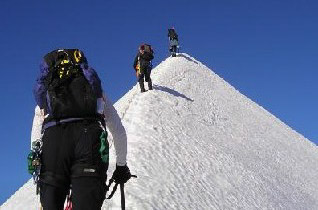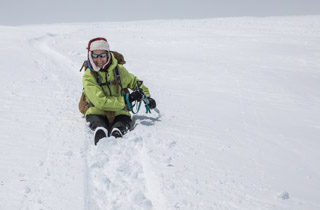Hiking Training
Hikers cover non-technical terrain of varying distances and elevation gain while carrying a pack. Weight for day hikes might range from a few pounds (i.e. snack, water, jacket) up to 20 pounds. Equipment might include trekking poles, headlamps, stove and fuel for multi-hour days, snacks, and clothing. Distances range from a few miles to extreme cases like the Grand Canyon Rim-to-Rim-to-Rim (43 miles and 12,000′ gain/loss). Elevation gain might range from flat to 7000′ or more. Whatever your hiking goal, we can create a suitable, custom-tailored training program!
To improve your balance and enhance your lower body strength and endurance, as well as mobility, for hiking, explore a few of our favorite movements in the following articles.
To give you the edge over more generalized fitness programs, include hiking-specific tips that will help you to succeed with some of the following articles.
Preparation for hiking involves training for specific fitness qualities, going on sport-specific outings, and practicing skills necessary for the sport.
The four major fitness components to include in a program for hiking include:
- Aerobic Endurance
- Anaerobic Endurance (for high altitude)
- Lower Body and Core Strength and Balance
- Flexibility and Mobility
Explore hiking program design and nutrition requirements in these suggested articles.
To prepare for your favorite hiking adventures, discover how to increase your aerobic and anaerobic capacity with these suggested articles.










